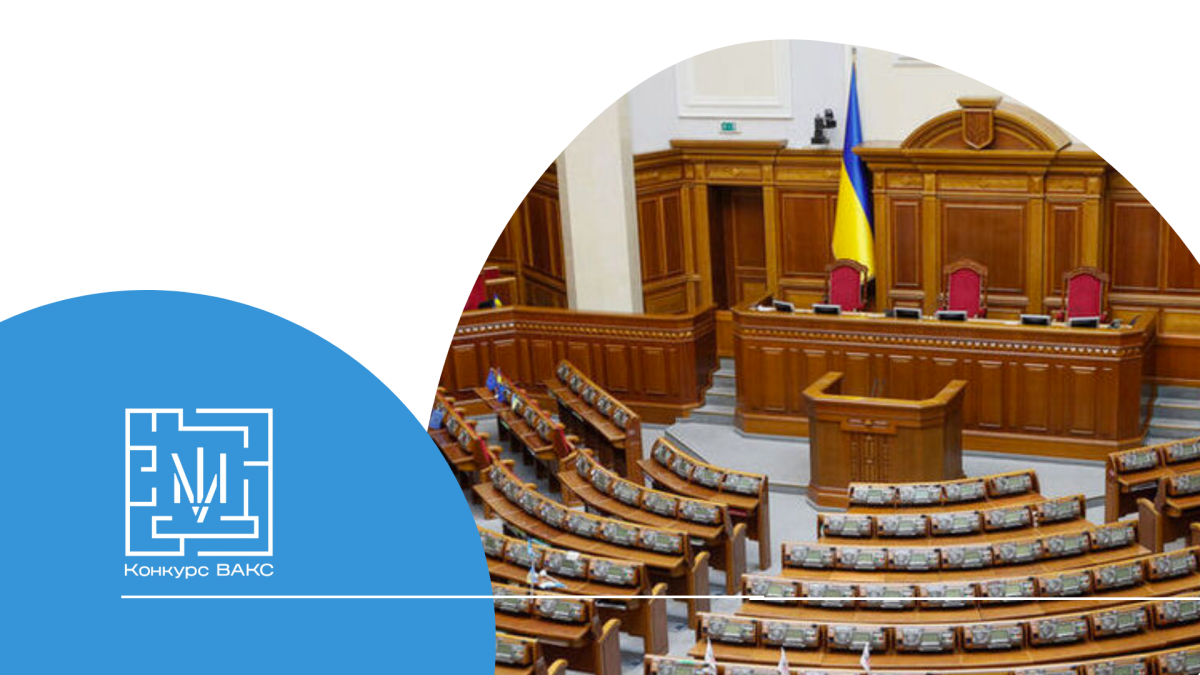

Today, MPs supported Draft Law No. 12331-2, which includes proposals to improve the HACC competition. It was important to adopt the changes before June 1, as the HACC Appeals Chamber will begin accepting applications for the competition on that date.
Earlier, MPs had already attempted to amend Draft Law No. 13114; however, the session hall rejected its inclusion in the agenda three times. This was despite the relevant committee emphasizing the importance of the proposed changes and suggesting that the time frame for submitting amendments be halved.
Nevertheless, the committee found a way to amend the rules of the HACC competition by submitting the relevant proposals for the second reading of Draft Law No. 12331-2, which was supported by MPs today.
Key amendments related to the HACC competition:
- participants who previously failed, did not attend, or refused to take the qualification exam will be allowed to reapply for the competition
- the minimum threshold score of 75% for the Ukrainian statehood test has been removed; from now on, the passing percentage will be determined by the High Qualification Commission of Judges (HQCJ)
- the additional meeting of the Commission’s Board, which took place after a candidate successfully passed interviews with the PCIE and HQCJ, has been removed — this change is expected to speed up the candidate recommendation process.
However, MPs did not support lifting the 10-year restriction on the participation of employees from certain bodies in the competition. As a result, these restrictions remain in place.
MPs also approved changes regarding public access to judicial dossiers — now, certain exceptions to disclosure will apply. The adopted wording allows for the removal of judges’ documents from public access if the judges or their relatives are military personnel, or if their relatives reside in temporarily occupied territories. The HQCJ will be responsible for implementation, and it is hoped that the body will organize the process carefully to avoid undermining public participation or discrediting the procedures.
We believe that the changes to the HACC competition may help expand the pool of potential candidates for judicial positions at the institution. At the same time, the implementation of the provisions on dossier access should be closely monitored by the public.
We believe that the changes to the HACC competition may help expand the pool of potential candidates for judicial positions at the institution. At the same time, the implementation of the provisions on dossier access should be closely monitored by the public.






